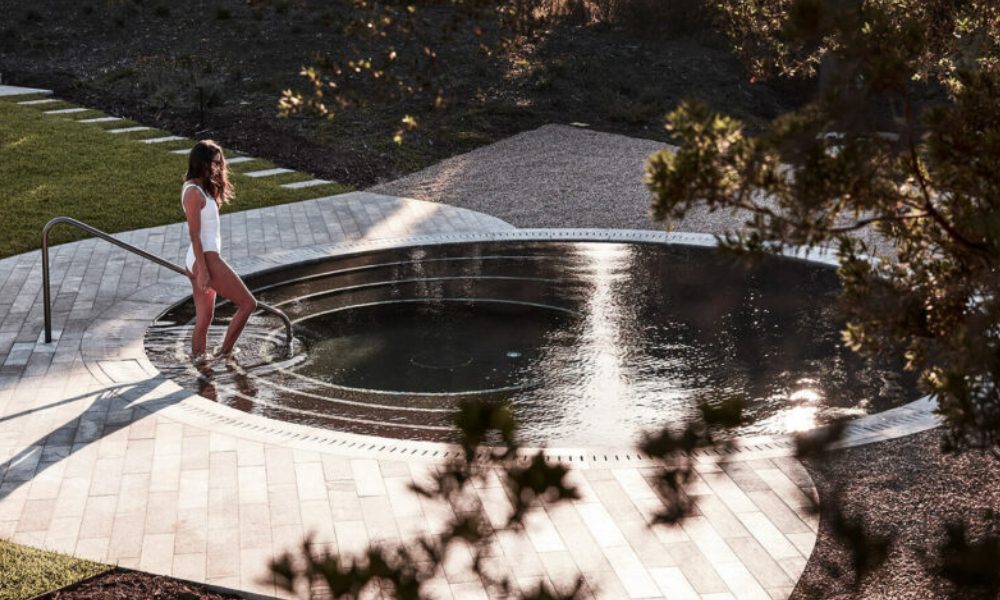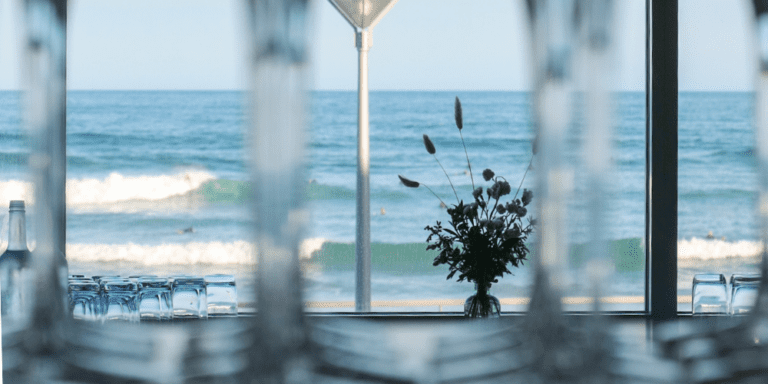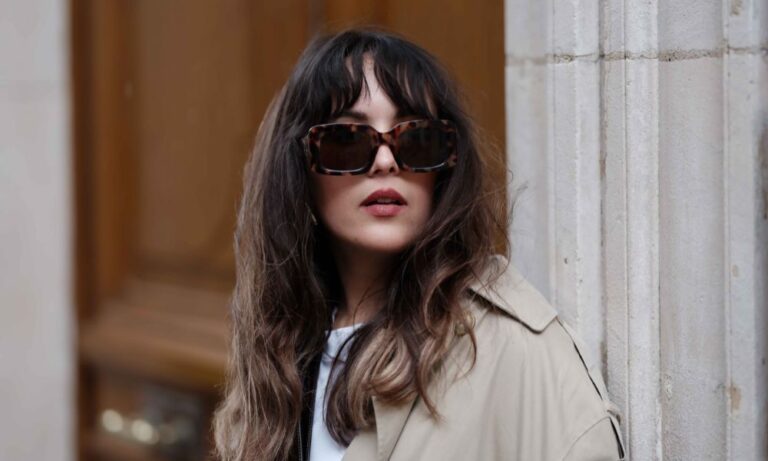Long a part of cultural and religious rituals as well as famed for therapeutic benefits, there’s no denying being enveloped in water has been a key ritual for centuries. But somewhere along the way, a busy life, smaller homes and even water scarcity has meant bathing has become a luxury many of us no longer pursue.
However, as we return to prioritising health, wellness and a little balance in a busy life, bathing has re-emerged as the original self-care practice.
THERMAL DIPS
Luxuriating in the mineral-rich waters of geothermal springs has been popular for hundreds of years. Thanks to the unique geology of each location, thermal springs may vary in what they offer but generally it is believed skin absorbs minerals and nutrients that are believed to smooth and heal skin. It may help relieve symptoms of conditions like psoriasis, eczema and dry scalp.
Globally, the appeal of thermal springs is well recognised, but increasingly more spas are making the most of locations that allow them to offer standard spa treatments as well as full-immersion benefits.
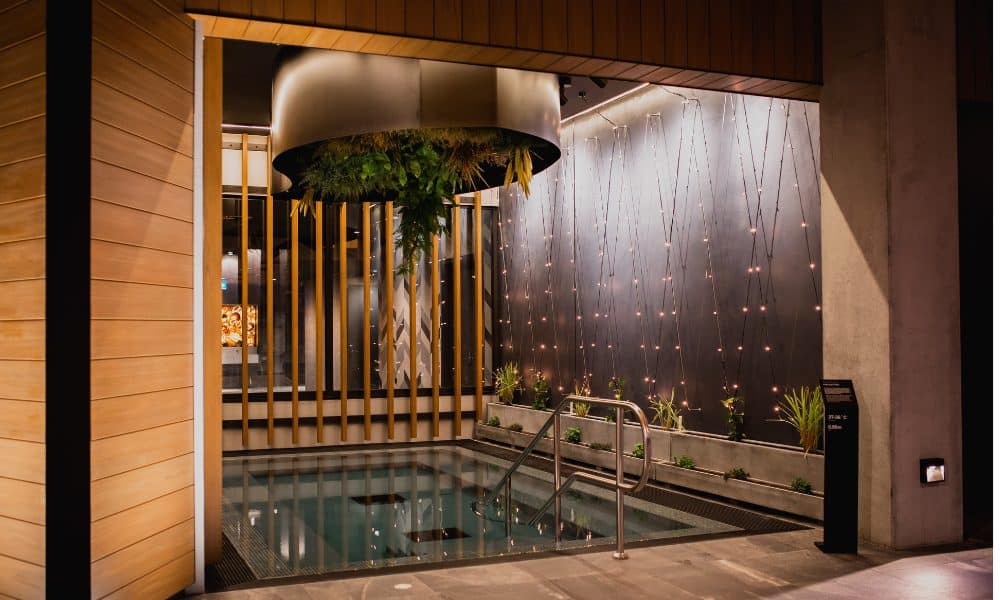
In New Zealand, the geothermal hotspot of Rotorua is a popular destination for its warm and soothing mineral waters.
Brand new luxury destination Wai Ariki Hot Springs and Spa in Rotorua opened in June 2023 with a range of luxe multi-sensory bathing and spa experiences, drawn from the customs and heritage of the area and local iwi of Ngāti Whakaue.
The highlights include warm geothermal bathing pools, an ice cold plunge pool, a hydrotherapy pool, steam room and sauna, thermal mud experience, and herbal pool with indigenous plants including kawakawa and koromiko offering aromatherapy benefits. A private mudbath in a blend of mineral-rich clay, thermal water, and essential oils is also on offer.
In the area, Polynesian Spa is an icon of the Rotorua tourism industry. The natural mineral bathing and spa treatment facility was built on the site of historic bath houses for which the city first became famous in the 1800s. It now has a number of bathing pools fed from two natural springs – the slightly acidic Priest Spring purported to relieve tired muscles, aches and pains, and the alkaline waters of the Rachel Spring, said to nourish the skin as it features the antiseptic action of sodium silicate.
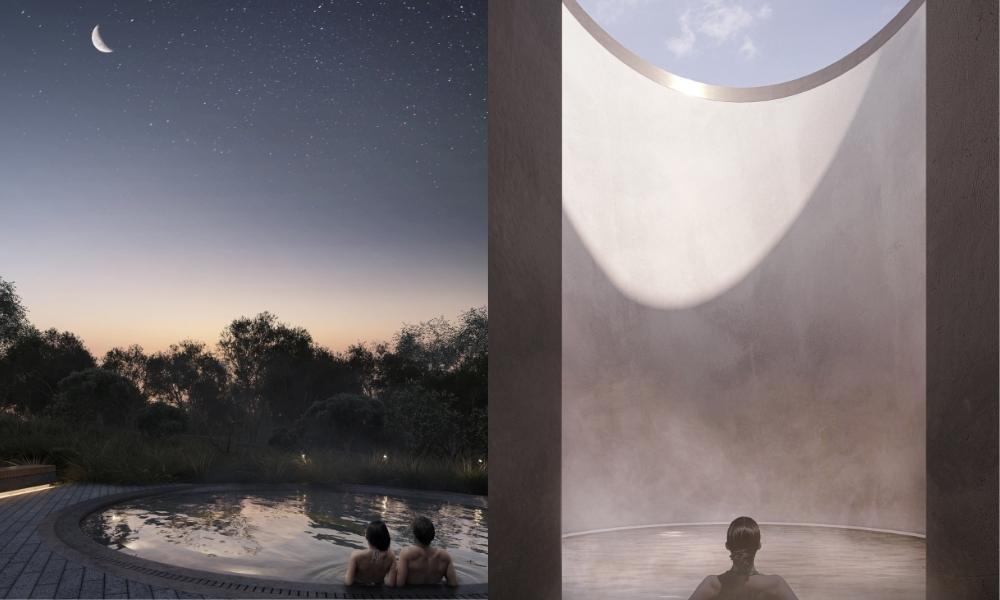
There are a number of new dedicated bathing hotspots to visit in Australia.
One destination to add to an itinerary is Alba Thermal Springs & Spa. Located on Victoria’s Mornington Peninsula, Alba introduces visitors to the art of ‘contemporary bathing.’
The thermal springs, day spa and restaurant combined is the epitome of a modern wellness sanctuary. You can access the therapeutic benefits of bathing in a number of pools, including a mineral-rich geothermal spring, as well as enjoying healthy meals, snacks and juices and a range of face and body treatments. Along with the warm geothermal waters there are rain pools, botanical pools, forest pools, cold plunge pools and even private salt pools.
The latter offer skylights allowing you to quiet your mind and minimise your visual distraction, simply gazing at the sky, while another in the dark offers a complete escape. Hot pools for one or two allow a sense of having the place to yourselves, while other larger ones provide a more social experience. There’s even one designed to make the most of the sunset, surrounded by the beauty of the coastal woodland.
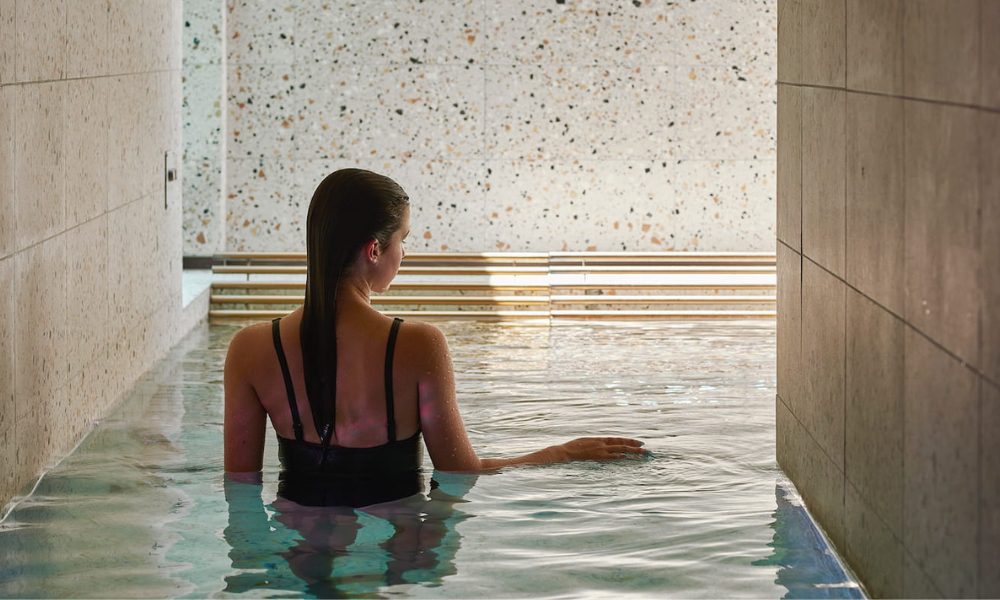
Also on the Mornington Peninsula is Aurora Spa & Bathhouse, in the newly refurbished, heritage-listed hotel The Continental Sorrento. The location features state-of-the-art bathing in stunning purpose-built hydrotherapy pools with ‘an array of curative water therapies and immersive contrast therapy that includes saunas, refelology pool, contrast therapy with cold plunge and more. The highlight is a ten-step Bathing Ritual that follows a cycle of hot-cold-relax to encourage blood flow and help your body flush toxins, release feel-good endorphins, relieve aches and pains, improve immune system function and boost your energy and mood.
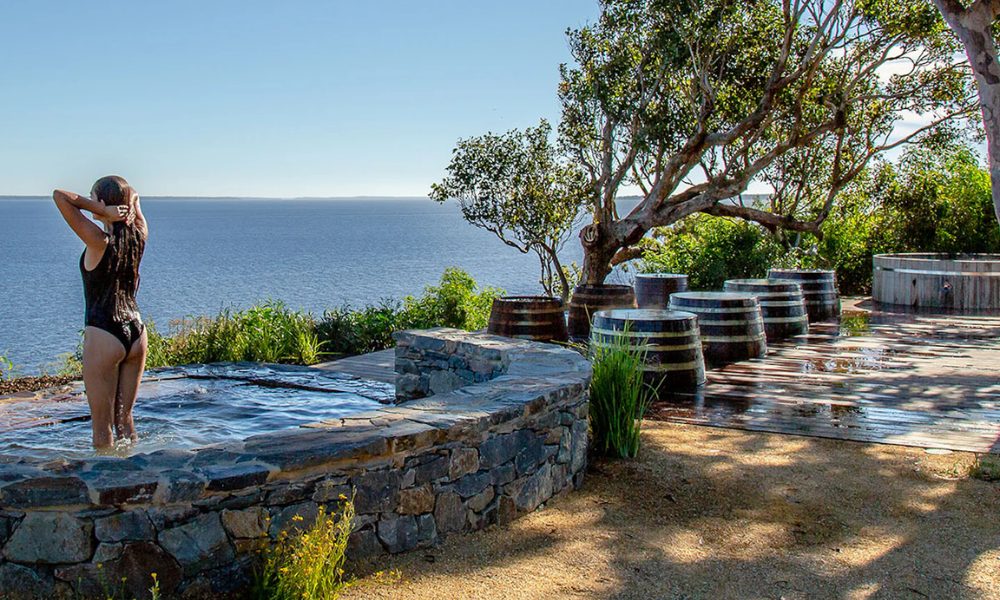
Metung Hot Springs is located in Victoria’s East Gippsland region. With geothermal hot spring pools of varying depths, bathing barrels with picturesque cliff top views of Lake King, massaging thermal showers, reflexology walk and nature walks around the grounds, you can even stay overnight in dedicated glamping tents with kingsize beds inside.
In Queensland are two sites for Soak, a modern bathhouse and day spa. One is at Mermaid Beach on the Gold Coast and the other on a rooftop in Brisbane’s West End. You can leave the kids behind as it’s restricted to those 16 and up, who will enjoy the sunny spots with city-style soaking tubs and spa treatments with mineral baths, hot spas, wood sauna, steam room, cold plunge and relaxation areas.
Another Soak location is expected to open in Bondi Beach, Sydney this year..
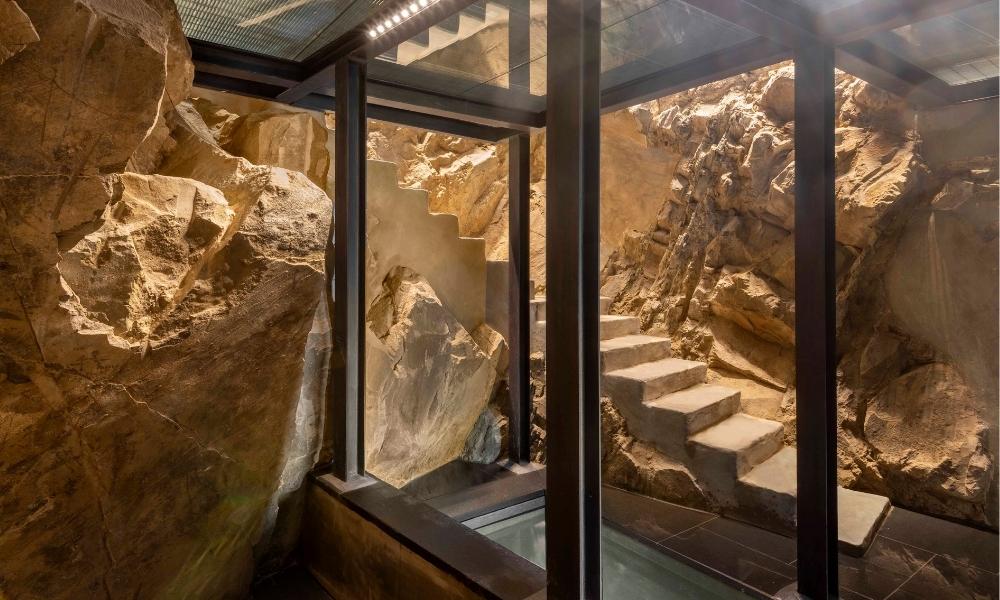
Revitalise the body and mind in Monteverdi’s frigidarium, an invigorating cold plunge pool surrounded by natural rock formations while you can experience a soaking ‘ritual’ in the spa’s outdoor tubs (top).
Further afield, Monteverdi, a sun- soaked boutique hotel and hilltop spa in the Val d’Orcia region of Tuscany, Italy, is capturing attention for its variety of wellness-focused offerings. In particular an underground heated pool facility inspired by ancient Roman baths so you can complete a ‘circuit’ of warm and cold plunge pools, saunas, sensory showers and a conservatory for a spot of mindfulness.
Outdoor travertine soaking tubs (Pictured at top) make the most of the bucolic views where you can experience one of four ‘bathing rituals’. They include traditional body scrubs and wraps as well as a soak prepared with a curated range of essential oils, aromatic salts and local herbs.
CONTRAST THERAPY
Clearly ‘contrast therapy’ is gaining popularity with these high-end spas, but you can also access the treatment at stylish purpose-built locations like Hana in Auckland and Slow House in Bondi, Sydney.
Inspired by traditional ‘polar plunges’ that are well known in Scandinavian countries and Japanese onsen enjoyed year round, the treatment involves subjecting your body to a warm environment like a sauna or hot pool and then plunging into a freezing ice bath for several minutes. Often this cycle is repeated a number of times. There are other ways to do contrast therapy. Many ocean-filled saltwater pools also have heated pools nearby, or a warm shower and then a dip in the sea in winter will likely have a similar effect.
For a back to nature experience Island Alive on Kangaroo Island in combines a range of wellness therapies but offers a a guided forest bathing session and nature walk with a guided breathwork or cold exposure session.
The benefits of cold and contrast therapy? Familiar to athletes for muscle recovery, proponents of contrast therapy tout a variety of benefits including athletic performance, cognitive function, better circulation and even improved immunity. However, although the muscle benefits, like improvements in muscle soreness, have research behind them, scientific proof available for other claims are harder to come by.
HOME COMFORTS
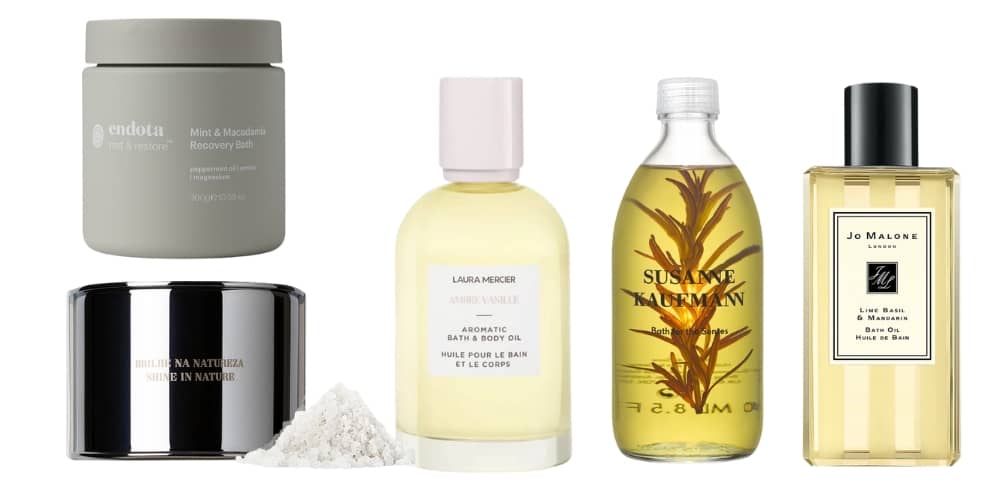
L-R: Endota Mint & Macadamia Recovery Bath; Costa Brazil Sal de Banho Bath Soak; Laura Mercier Aromatic Bath & Body Oil Ambre Vanille; Susanne Kaufmann Oil Bath For The Senses; Jo Malone London’s Lime Basil & Mandarin Bath Oil.
If you simply love a soak at home in the tub, there are modern ways to elevate the experience.
Dimming the lights, lighting a candle and locking the door are a given, but adding a modern bath soak to your tub will add further skin and sensory benefits.
Purpose-designed bath salts that supply soothing magnesium as well as a mix of essential oils and even dried flowers like roses and lavender provide both relaxation and visual and olfactory delights.
A fragrance lover? Jo Malone London infuses a number of its famous luxury colognes into bath oils. Made from almond and jojoba oils they contain fatty acids similar to those found in the skin’s collagen, making it ideal for assisting the elasticity and vitality of the skin. Bath oils and dissolvable bath bombs made primarily of baking soda have largely replaced bubble bath products because of concerns around ingredients used to create a foaming action.


